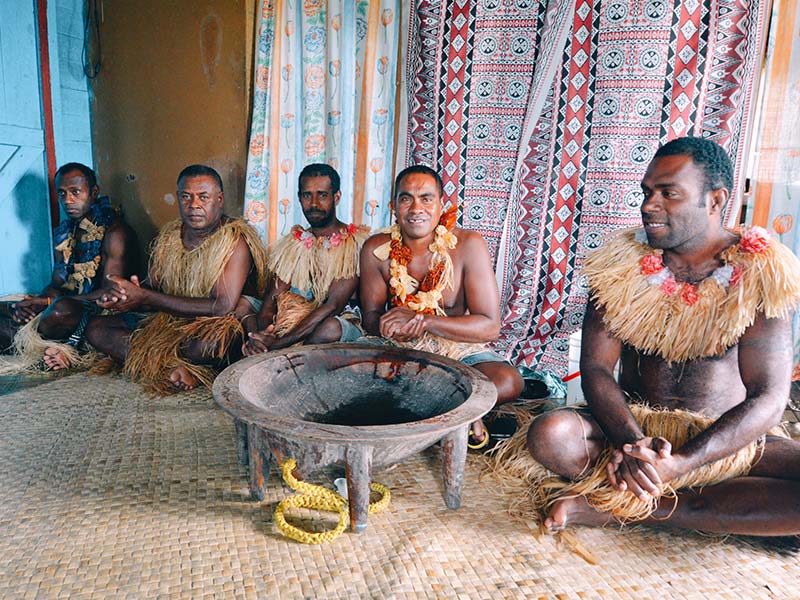Fiji is a splendid country in the South Pacific Ocean with amiable and welcoming people. The country is rich in culture, heritage, and history, and people from different parts of the world come to enjoy their holidays in Fiji. Fijian, English, and Hindustani are the official Languages of Fiji.
If you want to visit the country, you may wonder what language do they speak in Fiji and what you should learn. You don’t need to learn a new language to converse with Fijians. So let’s get into the discussion about the ways to connect with Fiji’s local people using a few key phrases.
Main Spoken Language in Fiji (What Language Do They Speak in Fiji)

The first language of Fiji is spoken by half of the country’s population, and the other half has other languages. Hindi, Fiji, and English are the official languages of Fiji. It is important to note that the Hindi of Fiji differs considerably from the Hindi spoken by Indians. Three hundred fifty thousand people in Fiji speak the Hindustani language. The alternate names of the Hindustani language are Fijian Hindi, Fiji Hindustani, and Fijian Hindustani.
You may call the Fijian language Eastern Fijian, Standard Fijian, or Fiji, alternatively spoken by 450,00 first language speakers. People living in Kadavu, Vanua Levu, Waya islands, offshore islands, the western half of Viti Levu, and the northeast and eastern half of Viti Levu speak the Fiji language.
Until 1997, English was Fiji’s official language, used mainly by the government, courts, businesses, and education. English was spoken occasionally by Indians in Rotuman and urban Chinese in Fiji. Kiribati is another language of the country that 5,300 people speak. Approximately 16,000 Fijians in the eastern part of Fiji speak in Lenau, and 9000 in Rotuma island speak in Rotuman.
Value of English Language Skills in Fiji
Though Fiji’s constitution provides equal status to all the three official languages of Fiji, English has an extra value in some parts of that country. English is a means to lead a better life in their country, as many believe. Many people in Fozara speak English. As it is the official language of Fiji’s Republic, almost everyone speaks English widely throughout the country.
Fiji has an immense number of English speakers, but the indigenous people of that country need help to initiate the proliferation of English. Though the history of the English language is not something to adore about Fijians, you will hear them speaking in English very frequently. Therefore, effective use of the English language in the country is a great advantage for visitors.
Half of the Fiji population use English as their second language, and 1-3% use it as the first language in the phonology domain, the most recent form of the language. The number is not that small; more than three million people have this language as their first language. The best use of the English language is seen in the government, business, and educational institutions. English is the lingua franca of the Fijian schools.
How to Greet in Fiji?
The most common spoken greeting that almost 70% of the Fijian population use is Bahula, pronounced as “Boo-lah.” While this phrase is a famous greeting in Fiji, it also translates to ‘life’ in English. “Bala” is another word used for welcoming people. To greet in an extended form, you can use ‘ni sa bula’ or ‘ni sa bula vinaka’.
Abula is a phrase derived from the Fiji language that refers to ‘hello’ and many other things. It is used in informal contexts like among friends, family members, or in general conversations. For greeting formally or elegantly, they use Ns abula or Ns Bula Vinaka. Bula is a specific Greek word by Fijians that means “good health and well-being.” To ask “how are you” in Fiji, use “Saabula bulabula vinaka tiko.”
You must learn to say “bula” or “Bula vinaka” to all the Fijians you meet. Whatever you know to greet the Fijians, don’t forget to learn the pronunciation first to make the conversation successful.
Also Read: Best Resorts in Fiji for Couples
Key Words and Phrases to Learn before Visiting Fiji
You should familiarize yourself with some keywords and phrases in the Fiji language while planning to visit the island of Fiji. The common daily life-used words will help you embrace and welcome the Fijian people.
The word you may hear in most cases is “bula,” meaning “hello,” but it translates to “life” and “good health.” You can wish good morning in the Fijian language, “ni sa yadra,” or bid “goodbye” to someone by “ni sa moce.” When you are admitted to a point, say “Io” (yes) or “Sega” (senga) means “no” when you deny or reject something. Say “Yalo vinaka” (please) while asking for something from a “tagane” (man) or a “Marama” (woman).
After being overwhelmed by the friendly approach of the Fijians, don’t forget to thank them by saying “Vinaka” (thank you) or “vee Naka vahka lehvoo” (thank you very much). If you feel sad or sorry about something, you can express it by the term “Vosoti au” (I am sorry). The phrase ‘ I don’t understand” is stated as “Au sega ni taura rawa” in Fijian. “Sega na leqa” means “no worries/don’t worry” in English. While asking to know about something, use “A cava oqo” (what is this?)”.
Some common words you will need to use in Fiji are “vale”/”bure” (house), “Koro” (village), “vale ni lotu” (church), “vale lailai” (toilet), “kana” (eat), “gunu” (drink), “sitoa” (shop), “niu” (coconut), “dua” (one), “rua” (two), “vaka totolo” (quickly), etc. Don’t fear these simple and common words while visiting the country. Local Fijians will always adore the time you take to learn the Fiji language and assist you anytime you need their help when you forget some words.
FAQs
Q: Is the Fiji Language Challenging to Learn?
The Fijian language is not very difficult to learn, but it becomes complicated when you have to master the language overnight before visiting the country. Whatever language you want to know, you must invest your highest patience, time, and repeated practice. You can immerse yourself in the culture of Fiji to learn the language fast.
Q: How Can You Say Goodbye in the Fiji Language?
The Fiji word “moce” is the way to say goodbye to people. While leaving Fiji, you will hear “vanuinui vinaka e nomu volau” from your Fijian friends, which means having a pleasant journey. Since saying goodbye is never pleasing, you might wish to go to the same place again. “See you again” is the phrase we say while leaving a place. “Sota tale” in Fiji is how you say, “see you again soon.”
In a Nutshell
It is an excellent decision to make a trip to Fiji to explore that country’s rich history and beautiful spots of that country but your confusion regarding what language they speak in Fiji has been solved in this post. Now, you can expect to enjoy a great time in Fiji without thinking much about the trouble of communicating with the Fijians. Learning only a couple of phrases in Hindustani or Fijians will be a great help for you to connect with Fiji’s local people.
